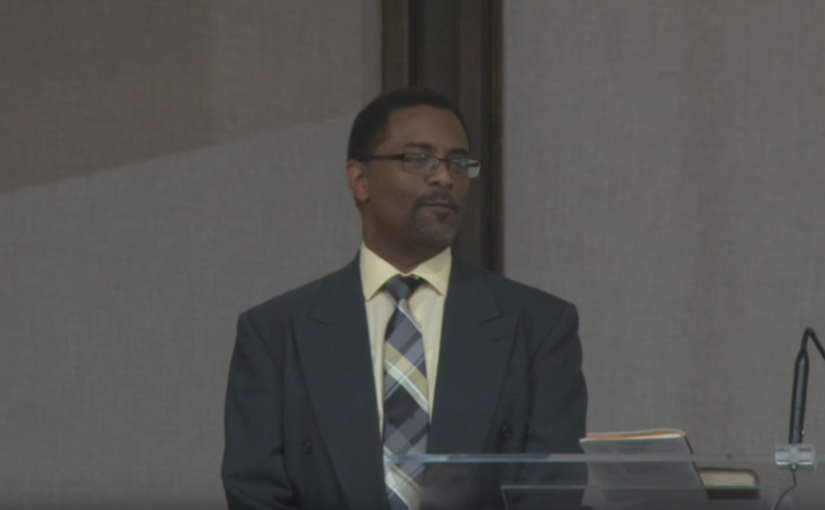We ask the question, “How do you respond to God’s infuriating grace?” as we conclude the book of Jonah.
In chapter 3 Jonah finally obeys God and preaches a 5-word (in Hebrew) sermon. “Forty more days and Nineveh will be overturned.” 3:5 But there are some important elements missing from Jonah’s sermon: the Why and the Who (compare 1:2). There’s no mention of their wickedness that has offended God, and no mention of God at all. What’s going on here? Why is Jonah leaving out crucial information? Could it be that he doesn’t want them to know enough to repent?
But despite himself, “The Ninevites believed God.” (Vs. 5) Notwithstanding the prophet’s best efforts to keep God out of it, they believed God and then they all came to Jesus—even the animals. And God had compassion and repented of the judgement he had threatened.
If all heaven rejoices when one sinner repents (see Luke 15:7), surely God’s prophet rejoiced over the repentance of 120,000, right? Wrong. Rewind to Jonah 4:1. “But Jonah was greatly displeased and became angry.”
An angry saint—the worst kind. The Hebrew here is “to blaze up; to wax hot.” Jonah was burning up with rage. Why? Because God gave grace to the wrong people. Because God showed love and compassion to those he hated. Grace is infuriating when you discover God gives it to the people you hate. Jonah was livid because despite everything, he couldn’t control the outcome for Nineveh, and he certainly couldn’t control the love and compassion of God. Angry saints are control freaks who lose it when they can’t control others—including God.
But God refuses to fit inside the tiny boxes we build for him. (See Romans 11:33, 34; Isaiah 55:8-9. God is in control, not you, and His love is unreasonable and beyond our logic. And instead of being mad, you should be glad because that’s the only reason He puts up with you!
But Angry Saints always want the worst for those who don’t toe the same religious line they do, in the way they do it. If they see any joy anywhere, they are devoted to stamping it out! They want and serve a God who gives people what they deserve.
“Then the Lord said, ‘Is it right for you to be angry?’” (4:4) In Hebrew is just a three-word question: “Is it right?” “You, Jonah, so concerned about rightness and wrongness, is your anger right?” God did have the right and cause to be angry with the Ninevites and chose to offer forgiveness. That’s His right. “Vengeance is Mine.” (Lev. 19:18; Deut. 32:35) But Jonah doesn’t respond. He turns his back on God and goes away to sulk. Angry saints play god when they continue to be angry at people and groups when God has pronounced His forgiveness.
Read verses 5-9. Jonah’s world is the size of the lean-to shelter he builds to spend time pouting in isolation. What a contrast between Jonah and the King of Nineveh! Jonah sulking on the throne of his self-pity and the King in the city off his throne fasting in sackcloth and ashes. Angry saints are often more arrogant in their self-righteousness than those they condemn.
God continues to reach out to his rebellious prophet, by commanding a plant to grow “to be a shade for his head and to deliver him from his misery.” The plant represents God’s kindness to all—good and bad. He showed mercy to Nineveh and to Jonah. The worm represents hatred, which kills kindness. The hot east wind (judgment) results when grace is absent. All that is left is the curse that results when the spirit of God is withdrawn.
Jonah was thankful for the plant and should have been thankful for the kindness of God to Nineveh. Though he was angry when the plant died, he would have been delighted if God’s grace would have been withdrawn from Nineveh. God was trying to get his prophet to see how messed up his thinking was.
God tries again with his earlier question, but this time makes it specific about the plant. Jonah’s answer (“Yes! Angry enough to die!”) reveals that he’s not willing to live with a God who can give or take away grace to Gentile or Israelite alike. He sees that God will not let him have it both ways—mercy for Israel and judgment for the Gentiles. Like before in the storm, Jonah would rather die than admit he was wrong. Angry saints never admit they are wrong.
In verses 10 and 11 God tenderly reminds Jonah that he had not labored for the plant: it had been a gift from Him. Rosemary Nixon says it so well, “The essence of love is to labor for something and make it grow. Love and labor are inseparable. We love that for which we labor, and labor for that which we love.” Are we laboring for what God loves?
Understanding and living God’s way of loving is the point of the book of Jonah, and it is the mission of the remnant church. The remnant church is not better than the others but has a particular responsibility towards others for articulating the truth of God to the world. That was Jonah’s calling, and he refused it because he couldn’t handle God’s infuriating grace. Can we?
Jonah cared more about his vine than he did about God’s people. Do I do the same? What do we care about? What makes us angry? What gets our juices stirred? Are they the same things that God cares about?
The book ends unresolved on purpose because the point isn’t to find out if Jonah ever came around, it’s to hold up a mirror to the reader and ask, have you come around? Will you come around to God’s way of loving? Who is the worm in your vine? Who do you have trouble forgiving? Who is it that you think your service to God would be so much better if they would go away? Could it be that this person is in your life precisely because God is inviting you into a deeper experience of His Grace for you? The answer is left to you.
Pastor Randy Maxwell




